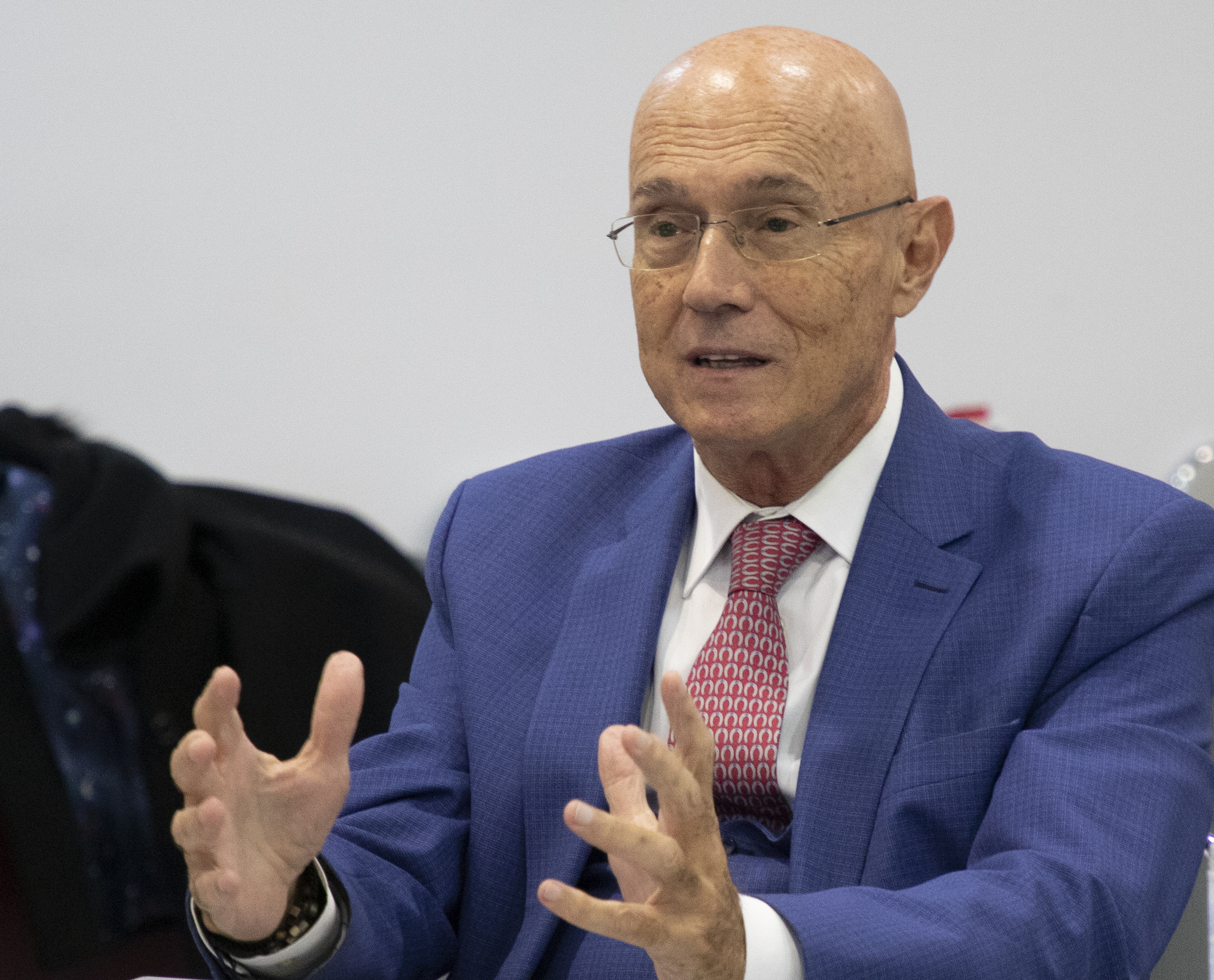GEORGE KREMLIS: I CAN GIVE A VERY HIGH GRADE TO VFU "CHERNORIZETS HRABAR" FOR THE TRAINING IN CIRCULAR ECONOMY
13 May 2022
 According to George Kremlis, honorary director of Directorate-General for the Environment of the European Commission, it is extremely important to raise public awareness of the forthcoming changes in the field of circular economy. "I highly appreciate Varna Free University for being the pioneer in the EU with the introduction of a master's degree programme in circular economy," said he in his address to the participants in a conference held today at VFU "Chernorizets Hrabar". The forum is the opening of the project Knowing Circular Economy under the joint operational programme for cross-border cooperation. According to him, the university is a very good example because it works actively to raise awareness by training not only students but also experts for the local authorities and the political and social life.
According to George Kremlis, honorary director of Directorate-General for the Environment of the European Commission, it is extremely important to raise public awareness of the forthcoming changes in the field of circular economy. "I highly appreciate Varna Free University for being the pioneer in the EU with the introduction of a master's degree programme in circular economy," said he in his address to the participants in a conference held today at VFU "Chernorizets Hrabar". The forum is the opening of the project Knowing Circular Economy under the joint operational programme for cross-border cooperation. According to him, the university is a very good example because it works actively to raise awareness by training not only students but also experts for the local authorities and the political and social life.The circular economy is a new model that is being promoted by the EU not only among member states but also around the world, added Mr. Kremlis. According to him, the main aim is to reduce the impact on the environment and save the resources of our planet. Circular economy must become something generally accepted and lasting within the framework of national and regional policies, added the expert. According to him, it should take a permanent place in the fields of tourism, agriculture, transport, energetics. This model should be actively adopted by the business, but should also be set as a development of the social economy, said Mr. Kremlis.
We need new models of circular production and circular consumption, said he. According to him, the idea is to achieve a longer life for products that will not turn into waste at the end of their use, but will be used as raw materials. The future lies in circular cities and even circular households, said Kremlis. He added that each country should have a national circular economy plan to be implemented at lower levels through regional and local plans.
New rules for the use of wastewater are yet to be introduced, said George Kremlis. The treated wastewater can be used in agriculture to irrigate crops. According to him, it would be useful in ports or other sectors for washing ships or cars, instead of wasting clean drinking water.
For the circular economy, which is a key priority for the EU, a lot of funds will be directed, including for the programming period until 2027, added Mr Kremlis. He clarified that it will be a challenge for Bulgaria to take advantage of them in the best way to achieve a successful transformation of its economy. Thanks to this model, new "green" jobs are already being created in the EU, and such jobs are expected to be created in your country as well, aded Mr Kremli as the BTA reporter Mila Edreva reported from the conference venue.

